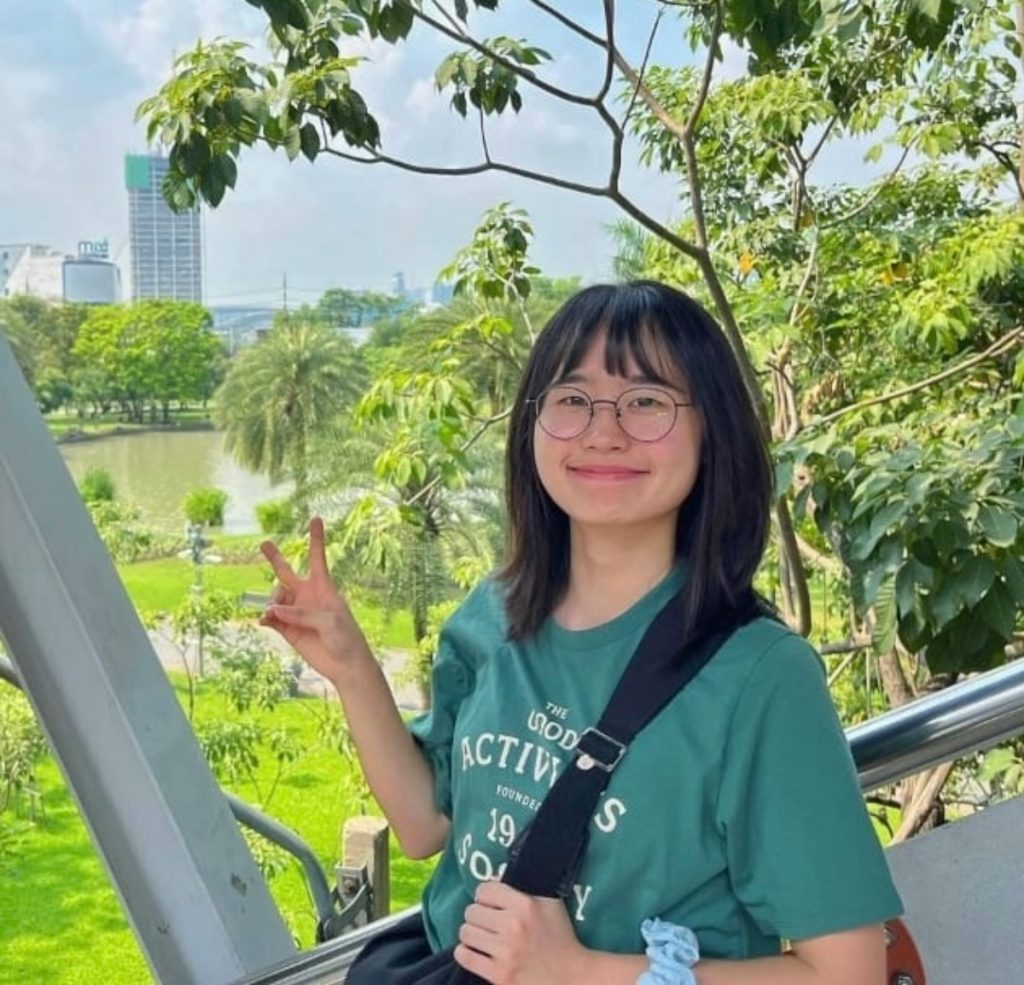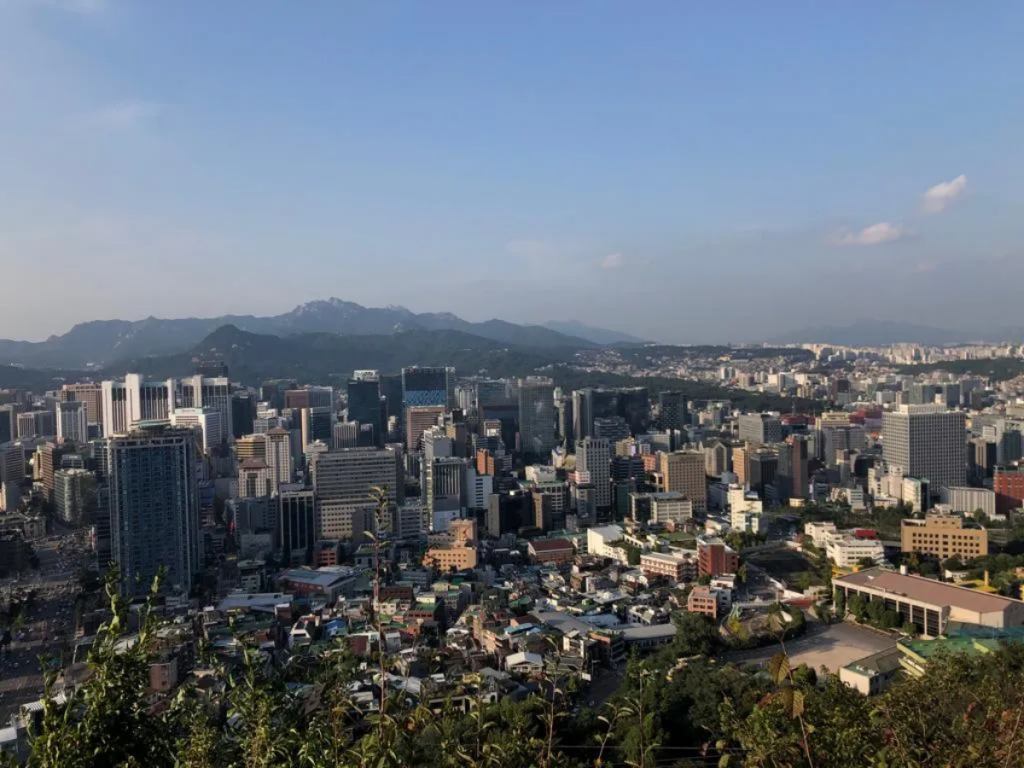“Seoul!! A clean, crowded, and colorful blend of old and new, modern and historical, latest tech and antique – and ohhhhhhh the food!” Mrs Stuebner exclaims. If you didn’t know, she and her husband fulfilled a dream of theirs and visited South Korea. Like Mrs. Stuebner, getting to explore South Korea is a dream of mine. It sounds like a wondrous place with such a different and fascinating culture. I can only imagine what it would be like to study and live there for my university tenure. Can you imagine it? On weekends you could explore South Korea’s beautiful landscape, from Gyeongbokgung Palace to Nami Island and from Bukhansan National Park to Hwaseong Fortress (Suwon). On weekdays, between university, you could see amazing sights in your host city, go out with friends, and easily pick up hobbies with cheap but quality lessons. Sounds like a dream come true to me. Before we get into what it’s like to live and study there, here are some fast facts about South Korea:
- Full Name: Republic of Korea
- Population: 51.63 million people (9.77 million in the capital city)
- Major Languages: Korean (English is taught throughout middle and high school)
- Major Religions: Christian 31.6% (Protestant 24%, Roman Catholic 7.6%), Buddhist 24.2%
- Life expectancy: 85.6 years for women and 79.9 years for men
- Currency: South Korean Won (1378 SKW to 1 USD; April 27, 2024)
- Time Zone: GMT/UTC + 9
To better understand what living and studying in South Korea is like for an NCAI student, I was able to ask Julie Kim from the graduating class of 2020. She is currently living in South Korea’s capital city Seoul and studying at one of the top three universities in the country, Yonsei University. Although Julie was born in Daejeon, South Korea, she moved to Nicaragua at a young age and started attending NCAI in first grade. Over twelve years at our school, she became an active member of the community and made a lasting impact on the middle schoolers who knew her.

Mia Klaehn enthusiastically shared “Julie inspired me to take up elementary small groups and also to join the worship team.” A sentiment also mirrored by Sofia Santamaria.
After graduating in June, Julie moved back to South Korea where she had to and still is adapting to such a different culture from the one that she grew up knowing.
Climate
According to her, the climate is “very different!” Unlike Nicaragua, Korea has four seasons because of its latitude north of the equator. Its winter normally spans from December to March when it is so cold whereas its summer lasts from July to August when it’s extremely hot. You might think the humidity here in May is bad, but Julie says the humidity in Korea is “insane.” She does, however, “love fall and spring when it is very colorful and not too hot or cold.”
Culture
In South Korea, there is a vibrant nightlife or as Julie puts it, “night culture”. According to a travel guide on Seoul night culture, there is something for everyone. From relaxing river cruises to bustling night markets and street food, from delicious Korean BBQ under the stars to cultural experiences in Insadong, Seoul’s nightlife is diverse and alive and a major part of Korean culture in general. However, Julie is not a night person, but instead she gets to enjoy the time when it’s less crowded.
Another interesting part of the culture is that the social routine is almost wholly different from anything in Nicaragua or the rest of the Western world.
There is a routine for teens and young adults when they go out with their friends. You first must eat a meal with them, either brunch/lunch/dinner. Next, you go to a cafe, and then end up doing karaoke. Karaoke is very developed in Korea and popular. According to John Lim, Korean people, across many demographics, love singing and singing with friends is important. To end the night you go take a picture at a photo booth. The idea of going to multiple locations is not common here where friends might go for dinner or a movie or to get ice cream, but in Korea, it is very common to go to at least two different establishments. As Julie explains it, “These are the MUST DO things.”
So much so that within four months in Korea, Julie had already taken over 20 pictures. These are just two remarkable examples of the different culture in South Korea and how much there would be to experience and explore if you lived and studied there.
Transportation
“Public transportation (Subway, bus, taxi, and train) is well developed in Korea,” Julie informs us. If you have heard something about South Korea, there is a good chance it’s been about the transportation. Not only is it clean, but it’s well organized, accessible, affordable, and, most of all, easy to use.
Julie continues elaborating that “you can only use a transportation card to get on the bus and subways (no cash is allowed).”
A big difference between South Korea and Nicaragua is that it is safe to walk in Korea at all times. In fact, South Korea is one of the safest countries in the world with very low crime rates. It’s no wonder that Julie walks to the Yonsei campus, which takes about 10 minutes. Even elementary students younger than ten walk around on the streets.
Social Life
Aside from some of the routines, Julie has found that there is not much of a difference regarding social life. She does, however, remark that she did “have to try to make friends; you have to approach first, [because] not many will go up to you first.” South Koreans are generally very friendly, warm, and kind, but it might take some time to forge deeper relationships.
Life Resources
The estimated cost of living in Seoul for an international student is approximately US$1075 a month which is very affordable in comparison to other major cities around the world. Cities like Chicago and Boston are often more than twice that amount.
Healthcare
Julie dives straight into one of the best things about Korea, which is the National Health Insurance that covers healthcare for all citizens. The NHI Service is required for all foreigners expecting to stay in Korea for more than 6 months but gives access to one of the most accessible and best quality healthcare systems in the world. Living and studying in Korea would give you access to what The Legatum Institute in London considers the third-best healthcare in the world. It is also very economical.
“Whenever I go to clinics, I pay about $3-4, and the prescribed medicines are about $3-5 (cheap, right?),” Julie explains.
Food
Unfortunately, food is expensive in Korea. A small meal at a cheap restaurant can be anywhere from USD$4.50-6.00, whereas, at a regular Korean restaurant, the price can range from USD$8.85-13.30. The most expensive food is often foreign food. Still, the cost means that it is more economical to eat at home rather than out and about. Julie does mention that Cafeteria food is about $4-6, but if you go out, it is about $15-20. Surprisingly, what gets especially expensive is fresh fruit.
However, in Julie’s experience, “It’s not as expensive [when] compared to the States…”
Clothing
As you may know, Korea is very advanced in fashion trends. Clothing prices can vary, like in other cities. It is possible to get cheap clothing, just as it is very possible to get pricey quickly when looking at brand clothing.
Julie asserts, “Everywhere you go, there are clothing shops and online shopping is something common in Korea which I love.”
It is also notable that some tourists travel to Korea just for the shopping.
Employment
“Currently one of the biggest troubles for young adults in Korea is that it is difficult to get a job,” Julie laments. “The economy has slowed down drastically, [so] there’s lots of competition among… people. Job entrance exams take months and years to study and pass.”
And that’s not even everything, there is a lot more. “It is a sad reality.”
School
“School is fun and tough,” Julie says pragmatically. She states that “time with friends is always [an upside] and the amount of studies and assignments are the downsides.” There is always a lot of pressure on Korean students to excel, but, thankfully, spending time with friends is an important rest period. Nonetheless, this leads to “it [being] difficult to manage… time wisely.”
Academic System
While university and college tuition isn’t regulated nor set by the South Korean government, school tuition across the prestigious spectrum is generally the same. The usual range is US$5.800 and US$6.500 per semester depending on the area of study. The difference between undergraduate and graduate degrees isn’t that big either. In recent years there has been an uptick in popularity and interest in South Korea which has led to numerous scholarships for international students. The best scholarships usually come from the South Korean government itself.
Higher education in South Korea follows the 3-tier degree structure with a bachelor’s degree taking anywhere from four to six years, a master’s degree taking two or more years after that, and a Doctoral degree taking another two or more years on top of all of that. There is also the US equivalent of an Associate degree offered which is called a Junior College Diploma. Something to note, however, is that it is extremely competitive and strict.
For example, “Attendance in Korea,” Julie describes, “is very important. I’ve heard from many exchange students, and they told me that in the States or… Canada, you would skip class and go to travel. In Korea, we don’t do this. If we miss [a third] of the class, we get [an] F.”
Overall
When asked to rate South Korea as a place to live and study, Julie gave a 7 out of 10.
She goes on to explain, “I am still in the process of adapting to Korea. The language and the study [are] difficult. I spend most of my time reviewing past lectures and doing my assignments which is stressful. Yet, I love what I am studying.”
South Korea would be an amazing place to pursue your higher education dreams, whether by enrolling at a prestigious University or by becoming a part of an exchange program at a university wherever you are. From the picturesque scenery to the electric night culture, if you let it, South Korea will easily find a place in your heart for its food, its culture, and its people. It is an experience that will last a lifetime and expand your worldview more than you could ever imagine. Let 서울아, 내 영혼아 become your heart’s anthem.

